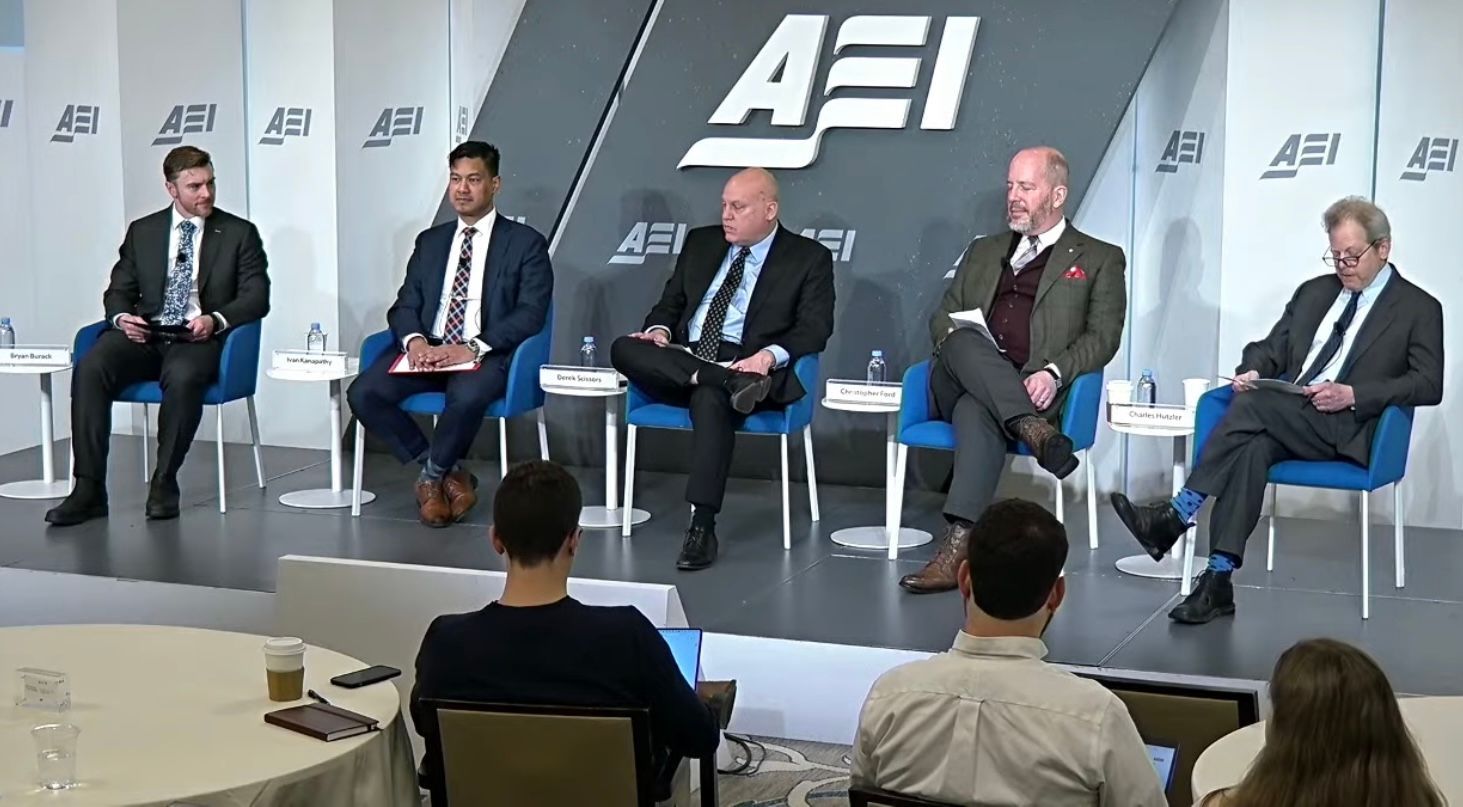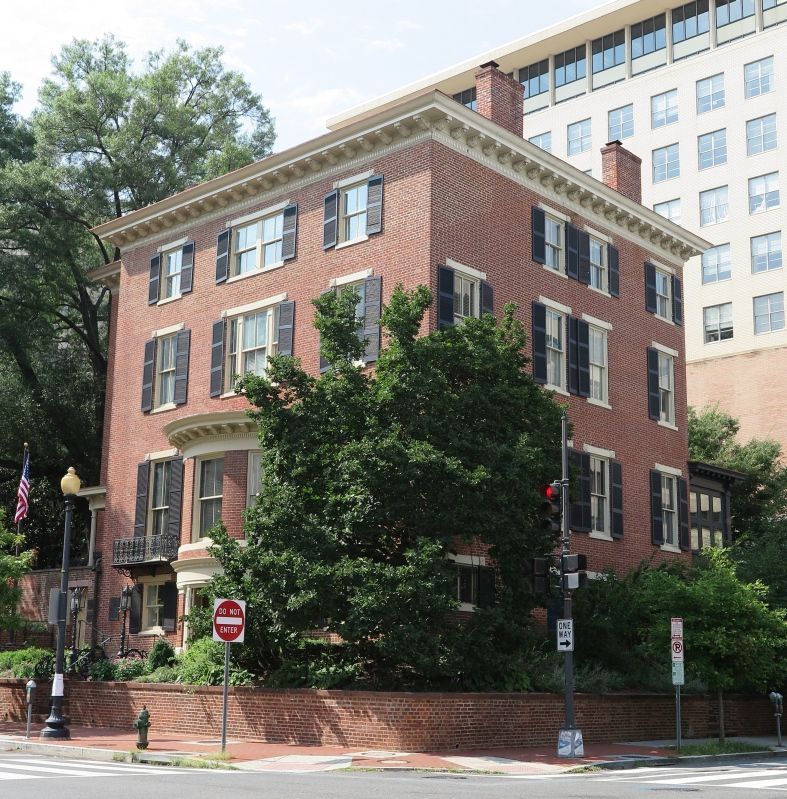The Hon. Christopher A. Ford
New Paradigms Forum -- International Security Policy Since 2009
ElBaradism and the Iranian Goal of a Fait Accompli
Note:
This essay is in response to George Perkovich’s guest entry, “Continuing the Dialogue” here on the NPF Nuclear Weapons blog.
Call it ElBaradism, or whatever you wish, but the diplomatic and policy community is now starting to reap the harvest of its longstanding timorousness in the face of Iran’s nuclear provocations. I name this phenomenon after the soon to be former Director General of the International Atomic Energy Agency (IAEA), who has devoted the better part of the last six years to protecting Iran from accountability for its violations of its nuclear nonproliferation obligations.
Technically, Mohammed Elbaradei’s job has been to run the agency responsible for discovering nuclear safeguards obligations and reporting them to the U.N. Security Council so that appropriate action can be taken. Instead of devoting himself to this job, however, he proclaimed himself to be – in his own extraordinary words , not mine, for I lack the madcap sense of humor it would have taken to concoct such a story – the world’s “secular pope,” on a mission to do “God’s work” in protecting Iran from “crazies” who might use (accurate) information about Tehran’s violations as an excuse for war.
In practice, ElBaradei’s methodology was quite simple: resist reaching obvious conclusions about Iran’s malfeasance; rhetorically dilute or downplay the implications of whatever is discovered (including de-emphasizing or simply suppressing evidence found and conclusions reached by his own competent and hard-working IAEA inspectors); delay drawing conclusions as long as possible; and fight tenaciously against efforts to make Iran pay any price for its misdeeds, until Iran’s unchecked pursuit of fissile material production capabilities renders the whole debate moot and he could declare it “too late” to do anything other than accept the mullahs’ fait accompli.
Whether this actually made war less likely is for history to judge. (It may well be, in fact, that ElBaradei has played a pivotal role in turning the Middle East into a nuclear tinderbox and making preemptive attack upon Iran more likely.) But ElBaradei’s tireless efforts to protect Iran against paying any price for its illegal pursuit of the capability to develop nuclear weapons – which he amazingly admits is in fact Tehran’s objective – have succeeed. Iran has come vastly closer to possessing the Bomb, and the ElBaradist shield has gravely undermined the nuclear nonproliferation regime. He will most likely end up being remembered with that special sort of contempt one reserves for self-righteous dupes and apologists.
I. Looking Back
To his credit, George Perkovich hasn’t been following that playbook. Since the beginning of the Iran nuclear crisis with the public revelation of much of its secret uranium enrichment and plutonium reprocessing program in August 2002, George has shown too much intellectual and moral integrity to be classed with Iran’s guardian angel in Vienna – though unfortunately that’s not setting the bar very high. Nevertheless, George’s approach seems to be circling back to the same point as our soi-disant “secular pope.” First, it is now too late to do anything other than concede to Iran everything that it has demanded. Second, our aim now should be merely to elicit more promises that it will not do what it has claimed all along (albeit entirely implausibly) that it never intended to do anyway. Finally, despite the sorry lesson of the international community’s demonstrable impotence in the face of continuing provocations, we must now rest our hopes for peace and security merely upon the assumption that if Iran does get caught crossing the next line we draw in the sand – e.g., with regard to weaponization, or the adoption of a weapon-permissive Israeli-style doctrine of “strategic ambiguity” – the world will, this time, miraculously pull together to handle the problem.
Interestingly, George seems to agree with me that it is possible to sway Iran by resolute pressure. At various points during the Iranian nuclear crisis, George seems to have acknowledged Iran’s susceptibility to such pressure – including the potential for catastrophic harm – in potentially returning to compliance with its obligations. George conceded early on, for instance, that “ [t]he 125,000 troops in Iraq and President Bush’s tough-minded leadership have made Iran's leaders nervous enough to look for accommodations with Washington ,” and that “ America's willingness to use force against emergent WMD threats … can stir the limbs of the international body politic to action.” (Declaring himself eager to see the United States forswear all military options against Iran if it ended its fissile material production program and stopped supporting terrorism , George also implied his theoretical openness to military measures if Tehran refused.) This fits well with what we think we know about Iran’s reported decision to suspend weaponization work in 2003, as I described in my last posting on this subject.
Yet while he seems to agree in principle that Iran can be swayed if confronted by firm pressure, George has remained curiously devoted to ensuring that Iran won’t actually face it. He spoke out early, for example, against “ act[ing] coercively against Iran ,” and he urged us to make sure the Iranians had no reason to fear that we might use our forces in Iraq against them. When the governments of Britain, France, and Germany cut their infamous side deal with Iran in late 2003 – deliberately derailing efforts to bring Iran before the U.N. Security Council, as required by the IAEA Statute, and thus demonstrating to Iran that Western governments could be counted upon to wobble just when they enjoy the greatest potential leverage against Iran – George praised this concessionary derogation from multilateral diplomacy as an example of “ the international system … working the way it’s supposed to work when someone breaks the rules.”
Rather than making good upon its potential leverage, George urged the United States after the 2002 revelations do things that would seem to reinforce the message in Tehran that we had already taught to North Korea: that proliferation pays. George argued that we should respond by making Iran feel more secure, and offering more trade and investment and other “ positive unilateral measures ” that would make the clerical regime feel more at ease. He argued that we should preemptively to offer Iran “ security, respect, and a prominent role in post-war politics in the Persian Gulf ,” welcome it into the World Trade Organization, and “ unilaterally lift economic sanctions that impede development of oil and natural gas flows.” George also suggested that we should respond to revelations about the Iranian uranium enrichment plant at Natanz and plutonium production reactor at Arak by pressuring Israel to give up its nuclear program: “ Israel’s nuclear and chemical weapons have to be brought into the picture, too.”
II. Security and Insecurity
I understand George’s logic that we should do what we can to undermine the reasons that proliferator regimes seek nuclear weapons. I even agree with it in principle, and I have argued elsewhere that with respect both to nuclear nonproliferation and to nuclear disarmament, one should think more in terms of “demand control” than merely technological “supply control.” But context matters, and here a caveat is in order. It makes a big difference whether Iran seeks a nuclear weapons capability in order to deter unprovoked U.S. aggression per se , or whether it seeks to deter outside intervention in response to Iran’s own regional muscle-flexing – thus helping immunize the regime against the potential consequences of future troublemaking, and facilitating Persia’s long-desired return to regional paramountcy.
My guess is that both factors are operative, but this is not a trivial distinction: the difference is one between a classically defensive deterrent and what one might call an offense-facilitating “empowerment.” How much do we really want to indulge the latter? For my part, I would be comfortable only providing assurances only against inappropriate intervention. It doesn’t seem terribly wise to rush to offer too much regime security to the world’s preeminent state sponsor of terrorism, a country whose president fulminates about wiping Israel “off the map,” and a state that has historically both sought and enjoyed a quasi-imperial – and at times literally imperial – regional hegemony. This is, of course, precisely why Iran’s neighbors – who have few qualms about regime survival in Iran per se – are so jittery about its acquisition of the nuclear weapons option or nuclear weapons themselves. Their unease also lies at the root of many experts’ fear that the Iranian nuclear program will provoke, and indeed already is provoking, an upwelling of interest in such “options” elsewhere in the region. Iran is not run merely by an insular, autarkic clique that seeks exclusively to maintain its own grip on power; the leadership of the Islamic Republic of Iran has a grandiose vision of its rightful role in the region, within Shia Islam, within the broader Muslim community, and in the world at large. (The present government’s increasing radicalization and domination by hot-headed millennialist Sh’ite fanatics associated with the Iranian Revolutionary Guards Corps [IRGC, a.k.a. Pasdaran] only makes this all the more problematic.) We should be cautious lest we empower this vision in the wrong ways.
Because Iran probably does to some extent fear forcible U.S. “regime change” irrespective of provocation, there is much to be said for keeping our rhetoric from becoming too shrill. George has made some sound points in this regard in the past, and I’m willing to concede that the Bush Administration – for which I worked – didn’t always find a constructive balance between expressions of outrage and measured sternness. Let’s be honest: the country that squashed Saddam Hussein’s regime in order to suppress Iraq’s presumed weapons of mass destruction (WMD) program didn’t need much anti-Iranian bombast in order for any implicit threat against Tehran to have credibility. Just ask Muammar Qaddafi, who put his own WMD on the negotiating table just as American forces drove into Iraq.
By the same token, however, it is sometimes impossible not to spook a regime as paranoid and insecure as the one in Tehran, and it’s probably unwise to bend over too far backwards in trying not to. Neither is the inadvisability of rhetorical excess any excuse for swinging the pendulum back to the other extreme, by making U.S. policy into the handmaiden of Iran’s construction for itself of a regional sphere of influence insulated against any outside threat, no matter how well deserved. In any event, George’s logic about addressing proliferator security concerns applies most strongly before a state breaks the law and sabotages the nonproliferation regime. Afterwards, falling over ourselves to offer it what it wants starts to smell rather like an extortion payment, and is likely to encourage future proliferation problems, both with the country in question and elsewhere. Did we learn nothing from Pyongyang?
III. But What to Do Now?
But all this is a bit academic, at least with respect to Iran, for this episode has run a long course over the past several years and any past mistakes cannot be unmade. It will never be known what steps, if any, would have forestalled the emergence of the Iranian nuclear crisis. George surely regrets that the security-assuring measures and other inducements he advocated were never tried, or at least were tried only falteringly and ambiguously in the context of the EU-3 and P5+1 negotiations. For my part, I regret the international community’s failure to confront Iran with any real pressure after mid-2003. Conceivably, in fact, more could even have been done – and earlier – in both respects. But it was not: the divided and equivocating diplomatic community has had a depressing degree of success in ensuring that advocates both of the “carrot” and the “stick” will probably look back on the Iran crisis with frustration and recrimination.
And so George is right to focus, in his latest posting, on what we can actually do now. Since Iran has never been forced to feel any particular need to change its course, is it too late to do more than accept the fait accompli of Iranian fissile material production? George seems to think so. He criticizes my suggestion (in my own previous posting on this blog) for being “not realistic.” Especially now that the Obama Administration has retreated to a position less resolute than that of France on these issues, and has failed to elicit Russian cooperation despite giving them what they want on a post-START treaty and through the preemptive and unilateral abandonment of land-based European missile defense (against Iranian missiles, no less!), is it at all “realistic” for me to think that we can present Iran with a serious diplomatic endgame before the imposition of crippling sanctions? We would not, George suggests, get sufficient support in the Security Council for such an effort, and Iran would be unlikely – at this point – to waver anyway. (One could only imagine the chuckles in Tehran: “Sir, they say that they’re really serious this time!”)
George may be right. Maybe the international community’s weakness and division in the face of Iran’s nuclear development program has indeed brought things too far for there to be anything other than a stark choice between some kind of ugly military scenario and our conceding to Iran at least the status of a “virtual” nuclear weapons power – and perhaps soon the status of a real one. If the Obama Administration’s official and unofficial pronouncements about the unthinkability of preemption are any indication, moreover, the “military option” is felt by this new team to be no option at all. In that case, George might be right that the best approach that remains available is merely to reach agreement on a clear definition of weaponization and elicit further promises that Iran will forswear such activity. (Never mind that the legally-binding Nuclear Nonproliferation Treaty already prohibits nuclear weapons development, and that this wasn’t notably effective in persuading Iran not to engage in the weaponization work that U.S. intelligence believes it pursued until 2003, and which allied intelligence agencies believe it has since resumed.) But are we really at the end of the line in this regard?
Not yet, I hope. It is true that there is only a dim prospect of firm Security Council action at this point, especially if the Obama Administration continues to show such adeptness at squandering opportunities for serious coalition-building such as that presented by the Qom revelations. China and Russia have shown themselves to be spectacularly unserious partners when it comes to nonproliferation compliance enforcement – with the Russians in particular having no doubt cackled all the way to the metaphorical bank after pocketing Obama’s climb-down on European missile defense in return, it would appear, for precisely nothing. Nor, it would seem, do we presently have much leverage over either of those countries. At this point in the solipsistic politics of the Obama Administration’s rhetorically messianic arms control and disarmament policy, officials in Moscow have reason to conclude that our new Nobel laureate needs a placid U.S.-Russian relationship, including a new strategic arms deal, more than Russia does. Indeed, it is not hard to imagine Putin-era strategists in the Kremlin thinking that an Iranian weapons “option” – or even weaponization itself – is actually in Russia’s interest anyway, on account of the delicious monkey wrench it would throw into America’s posture in the Middle East.
As for China, what does our President have to bargain with? Does anyone think, for instance, he would be willing to buck the unions and undo his opportunistically protectionist duties on Chinese tires? Or that Beijing would jump at the prospect of such a limp quid pro quo in any event? President Obama is apparently already moving control over U.S. high-tech satellite-related exports back from the more restrictive State Department to the export-oriented Commerce Department, and has already distinguished himself as the first U.S. President since the end of the Cold War to spurn His Holiness the XIVth Dalai Lama, so those options are out too. (Real negotiating with other countries is difficult, it turns out, when your political standing depends upon adulation gained by finally giving negotiating partners what they want from the United States, and your policy thus consists of opening with preemptive concessions and avoiding anything that might make you look like your nay-saying predecessor. Gratitude may turn out to be in short supply when it comes to getting others to do anything more serious than just applaud.) So George is right that we should not expect much from the Security Council at this point.
But we shouldn’t let a romantic attraction to United Nations diplomacy lead us to conclude that the Security Council is the only way to apply sanctions. Don’t forget the Bush Administration’s pleasant surprise to discover that comparatively minor sanctions against one bank linked to North Korean smuggling had a notable follow-on effect – in the rapid and efficient information system of international finance – in imposing quite considerable costs upon the leadership elite in Pyongyang. If we and our allies really wanted to do so, we might yet manage to cause a good deal of pain in Tehran, particularly if Europe finally got serious about national (or even EU) financial and trade sanctions. True, China might try to step into the breach as it has done to date, making up for the trade volume Iran’s provocations lose it with the West. It might be easier to persuade China to forego this, however – or to use any such replacement trade as a lever of influence in its own right – than to obtain Beijing’s endorsement for strong Security Council sanctions. France has talked increasingly, in recent years, of the possibility of national sanctions not dependent upon the Council’s imprimatur, and other Europeans and other like-minded countries serious about nonproliferation might be persuaded to go along. Either way, if Iran continues to violate the law by refusing to comply with the relevant legally-binding Security Council resolutions, the prospect of presenting it with the prospect of meaningful pain is far better by the national sanctions route than by going through the Council.
President Obama seems to feel that the key to making progress in getting other countries to support vigorous nonproliferation policies is for the United States to change the tone and demonstrate its “credibility” in the pursuit of nuclear disarmament. I’m skeptical of that argument, and have not treated it kindly in my own writing. But let’s put it to the test. Our new President is apparently so well-regarded with respect to disarmament that he has been given the Nobel Peace Prize merely for saying that he believes in it – truly a striking endorsement of his agenda. So let’s see if he’s right about nonproliferation: if there is anything to the political halo with which the President has surrounded himself, why can he not engineer something along the lines of the diplomatic endgame with which I urge us to confront Iran by the end of the year? After spending the first months of his presidency agreeing to reverse U.S. policy on issue after issue where the international arms control and disarmament community had been demanding changes for years – the test ban treaty, fissile material treaty verification, nuclear weapons free zones, negative security assurances, ballistic missile defenses, accelerated strategic arms cuts, and an emphatic commitment to the goal of nuclear “zero” itself – is it not time to demand of this community something that the United States requires in return?
As for the October 1 agreement-in-principle whereby the P5+1 states will actually help Iran acquire highly-enriched uranium (HEU), if we are stuck with it, we must move to prevent the creation of a dangerous precedent whereby proliferator regimes everywhere will discover that they, too, have a “need” for HEU in order to produce medical isotopes. As much as possible of Iran’s LEU supply should be removed from the country in order to produce these HEU fuel rods for the Tehran research reactor, but we shouldn’t exactly rush the job of getting the enriched fuel back to them. (These things take time, you see ....) It would, of course, also be illegal to return it unless and until Iran has complied with its obligation to suspend all enrichment and reprocessing pursuant to several Security Council resolutions issued under Chapter VII of the U.N. Charter – which impose an international ban upon nuclear-related transfers to Iran – so we must insist upon such suspension as a precondition for the fuel’s return. (The P5+1 agreement to enrich such fuel for Iran would be regarded as our vote of confidence that a diplomatic solution is possible before the end of the months or years it would take to accomplish the additional enrichment in Russia and fuel fabrication in France.) Other preconditions should include placing the fuel and the reactor under so-called INFCIRC/66 safeguards, which would not expire upon Iran’s withdrawal from the NPT. Moreover, if any additional information should happen to come to light about secret Iranian nuclear work (see my previous posting), the HEU should not be returned at all. Perhaps, if we wish to demonstrate the vigor of our diplomatic peacemaking and the fact that we certainly not opposed to Iranians having access to the best possible cancer treatments, we could help Iran convert its research reactor to a LEU core still useful for isotopic production. (A need for HEU? What need for HEU?)
With regard to the ultimate disposition of Iran’s enrichment program itself, it is an unfortunate fact that the Security Council resolutions call for mere “suspension,” with the result that even in the event of Iranian compliance, we’d have to negotiate a longer-term answer. The right answer, of course, is outright abandonment – a North Korean-style “dismantlement.” That should be President Obama’s objective, and an appropriate challenge for his supposed persuasive powers now that the Norwegians have given him a clean bill of health with regard to his disarmament intentions.
Some experts have been proposing for years a sort of “regional” enrichment center for the supply of reactor fuel, conducted in a less problematic location under some kind of joint proprietorship. To my knowledge, this has not formally been offered to Iran, though both Russia and Kazakhstan have at various points indicated interest in hosting such a thing. If Nobel Laureate Obama proves unequal to the task of persuading Iran to agree to dismantlement or to extend suspension indefinitely, one might imagine a variation on this theme becoming part of final disposition discussions. Since the Nuclear Suppliers Group (NSG) has already given its in-principle endorsement to the idea of providing countries with enrichment and reprocessing capabilities on a “black box” basis – in such a way that the host government theoretically has no access to the technology itself – one might imagine that such a regional “center” could be organized in such a way as to prevent proliferation-risky technology transfers to non-nuclear weapons states whose officials might be its part-owners and -managers. Indeed, such a plant might even use Iranian centrifuges relocated from Natanz and Qom for this work. (After all, it would not be any worse to permit continued access to such machines by Iranian technicians there than it would be to permit them such access in Iran itself. It would, in fact, be better, insofar as having the facility be located elsewhere would greatly reduce the danger of clandestine diversion or a North Korean-style repudiation of safeguards.) Naturally, Iran would be required to accept the Additional Protocol and any other augmented state-of-the-art safeguards procedures that come along in order to reduce the danger of undeclared nuclear activity.
Since Iran will even by its own most optimistic projections remain dependent upon outside suppliers for reactor construction and fuel fabrication – and indeed even for a supply of natural uranium itself, for it does not have enough domestic ore to support the power program it claims to wish to develop – “dependence” for enrichment upon a partly-Iranian-run facility somewhere else in the world would hardly be a catastrophe for Iran. The Iranians might even try to spin such a long-term solution as some sort of vindication for their alleged “right” to enrich. By the same token, nonproliferation policy would be at least partly vindicated, to the degree that Iran would not simply have succeeded in browbeating international institutions into accepting the post hoc legitimization of a felicitously-discovered secret and unlawful nuclear program, and to the degree that this solution would have interposed a few protections against the further misuse of Iranian enrichment and would have stopped short of endorsing the dangerous Treaty-subversive precedent that everyone should be allowed to become a “virtual” nuclear weapons state if they wish.
How “realistic” is this scenario? It would be difficult to achieve under the best of circumstances, and might not be possible at all. George may indeed end up being vindicated in his apparent conclusion that the game is basically already over with regard to Iran’s nuclear weapons “option,” and that all we can hope for is to stumble along while trying to contain the regional proliferation consequences and urging Iran not to shift to a policy of “strategic ambiguity” or open weapons development. But we’re not there yet, and our new President still has at least a fighting chance – if he has the stomach for it – of confronting Iran with the prospect of genuine unpleasantness if it does not comply with its Chapter VII obligations. George and I both agree that pressure can influence Iran. I still don’t think it’s too late, finally, to try.
– Christopher Ford



Copyright Dr. Christopher Ford All Rights Reserved






